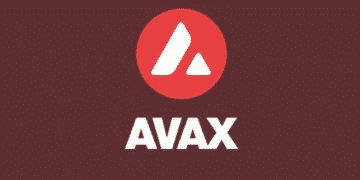In his Feb. 8 supposition, Santander’s Julio Faura proposes that “utility tokens are a terrible thought” since it would be a “mislead ourselves” to recommend introductory coin offerings (ICOs) were not really offering securities.
Or maybe, as Faura would like to think “we ought to by and large work on a structure to construct an unmistakably characterized conspire for ICOs, perceiving from the earliest starting point that they are securities.” And, this “ICO process ought to be planned as a team with controllers to consent to securities law.”
Faura’s conclusion piece does not exist in a vacuum. In a report dated Feb. 5, Goldman Sachs’ worldwide head of speculation examine proposes that financial specialists in ICOs could lose their whole ventures – which binds to Faura’s fundamental preface that ICOs ought to be managed “to secure speculators.”
It isn’t clear how his proposed half and half arrangement could ever get executed, given it requires finish purchase in from capital markets and controllers, so it would be a non-starter from the very beginning.
For what reason would existing monetary foundations and controllers leave existing techniques for raising capital or endeavor to press ICOs under customary securities law, regardless of whether thought about an offer of securities?
Reply: They would not. Swell – an organization in part subsidized by Santander InnoVentures – offers a look at how conventional banks and monetary markets will contend utilizing blockchain innovation and “coins.”
Faura’s conclusion piece paints all ICOs with a similar brush by guaranteeing every last one of them really offers securities subject to U.S. Securities and Exchange Commission (SEC) investigation. That is just not the situation.
In reality, does Faura ask why the SEC has not thumped on Ripple’s XRP “computerized resource” entryway? Despite the fact that there was no formal ICO to dispatch that seemingly concentrated token, it now exchanges on 18 trades where people can purchase the XRP coin. To be sure, in the wake of raising almost $94 million of investment, Ripple likely does not require an ICO.
One ICO left untouched by the SEC was “door keeped” by the law office of Perkins Coie and included the offer of an utility token that brought $35 million up in less than a moment’s opportunity. Overcome’s token makes a computerized promoting biological community fixing to customer consideration – which is the reason it is named the Basic Attention Token. Such an environment would unquestionably be a redesign from the current advanced publicizing plan married to the web biological community of 1995.
Sensible Regulation
Everything considered, it appears that the SEC and other administrative bodies have really adopted an exceptionally estimated strategy around there – forcefully concentrating on evident fraudsters first keeping in mind the end goal to deflect resulting fraudsters, while giving the innovation a chance to play out a bit in nature.
As anyone might expect, the offended party’s bar has been completing a great job grabbing the slack in those occasions when the SEC has not yet moved. See Davy v. Paragon Coin, Inc., et al., Case No. 18-cv-00671 (N.D. Cal. January 30, 2018) and Paige v. Bitconnect Intern. PLC, et al., Case No. 3:18-CV-58-JHM (W.D. Ky. January 29, 2018).
Late markers appear to back this elucidation of the SEC’s ICO position.
On February 6, SEC administrator Jay Clayton recognized before the Senate Banking Committee that the potential got from blockchain was “exceptionally huge.” His co-witness, Commodity Futures Trading Commission director Christopher Giancarlo, went so far as to state there might have been “gigantic potential” that “appears to be uncommon” for blockchain-based organizations.
However, amid his declaration, Chairman Clayton said the SEC would proceed to “break down hard” on misrepresentation and control including ICOs offering an unregistered security. This is steady with earlier informing given that Chairman Clayton asked for on December 11 that the SEC’s Enforcement Division “enthusiastically” authorize and suggest activity against ICOs that might be disregarding the government securities laws.
Administrator Clayton said the SEC was “working the beat hard” to get serious about ICOs, yet picked not to answer an inquiry postured of him by Senator Mark Warner of Virginia, in particular whether the SEC will “backpedal” and examine prior ICOs.
At the end of the day, there might be some ICOs, similar to the one for BAT, that the SEC won’t assault, despite Clayton’s remark in the hearing that “each ICO I’ve seen is a security.”
The prospect that somewhere in the range of 2017 ICOs raising countless dollars won’t be tended to by the SEC gives an unmistakable “push wink” that not all ICOs go under SEC administrative control.
Similarly as with XRP and BAT, later on, there will probably be numerous more tokens based on troublesome blockchain activities that escape SEC investigation given they are not seen as securities.
The way that the SEC has not yet proceeded onward them – regardless of moving against Munchee, Inc. weeks after the Munchee MUN offering – signals the SEC will temper its authorization exercises when looked with a troublesome blockchain activity that brings forth obvious inherent esteem.
As such, utility tokens might be a smart thought all things considered.
DC Forecasts is a leader in many crypto news categories, striving for the highest journalistic standards and abiding by a strict set of editorial policies. If you are interested to offer your expertise or contribute to our news website, feel free to contact us at [email protected]























Discussion about this post